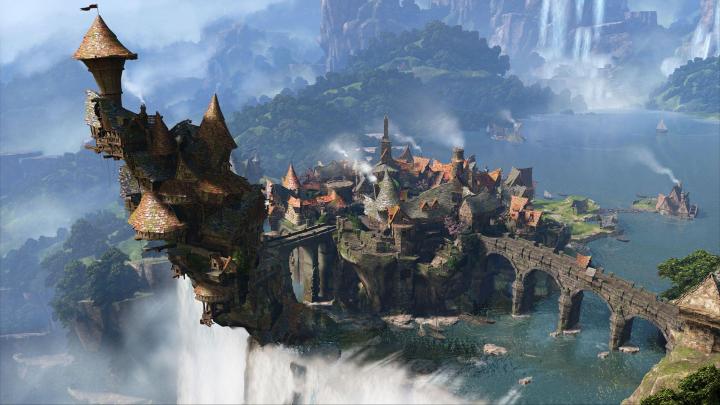
I speak for all of Xbox when I say that despite this news, we remain committed to the development communities in the UK and Europe, and Xbox will continue to support new IP and originality in the games we offer on our platforms, whether they’re AAA blockbusters like Quantum Break from Remedy, adventurous new IPs like Sea of Thieves from Rare, or unique new creations from independent developers like Moon Studios with Ori.
We have nothing but heart-felt thanks for the members of Lionhead and Press Play for their contributions to Xbox and gaming. We are committed to working closely with those affected by today’s news to find them new opportunities at Xbox, or partnering with the broader development community to help place them in jobs elsewhere in the games industry should they desire.
Best known for the Fable series of action role-playing games, Lionhead was founded in 1996 by divisive developer Peter Molyneux after EA acquired his previous studio, Bullfrog Productions, which had created PC gaming classics such as Populous, Syndicate, Theme Hospital, and Dungeon Keeper. The studio was based in Guildford, U.K., just south of London. After extensive delays, Lionhead’s first project, Black & White, was released in 2001. An extension of the “God game” genre that Molyneux had pioneered at Bullfrog, Black & White was a unique hybrid of real-time strategy and artificial life simulators, with a dash of fighting games thrown in for good measure. Microsoft Studios acquired Lionhead in 2006 as it was developing Fable II. Molyneux led the studio until leaving in 2012 to found 22Cans for the massive social gaming experiment, Curiosity, and Populous-like, Godus.
Lionhead’s final project, Fable Legends, was announced in 2013 as an asymmetrical, multiplayer role-playing game in which one player would assume the Dungeon Master-like role of the villain who would would place and control the threats faced by the other players’ heroes. It was conceptually similar to the recent D&D PC game Sword Coast Legends and the Fantasy Flight-published board game Descent (or its more recent, Star Wars-themed spin-off, Imperial Assault). Announced in 2013, Fable Legends featured heavily in Microsoft’s recent gaming initiative to unify Windows 10 and Xbox One into a single, fluid platform.
Copenhagen-based Press Play was founded in 2006 and acquired by Microsoft Studios in 2012, joining the likes of Lionhead, 343 Industries, and Rare. It was best known for puzzle-platformers such as Kalimba and Max: The Curse of Brotherhood. The studio’s current project, Project: Knoxville, however, was a change of pace as a third-person multiplayer action/survival game framed in a dystopian game show, reminiscent of The Hunger Games. Players could work both with and against one another to survive dangerous arenas. Knoxville was selected by fans from three potential next projects for Press Play in a 2015 poll. Leaving no question about the game’s fate, Microsoft’s announcement included plans to “sunset development on Project Knoxville.”
The announcement does not include an exact timetable for the studios closing, but our best wishes go out to all of the talented and hardworking developers who will soon be looking for work.


